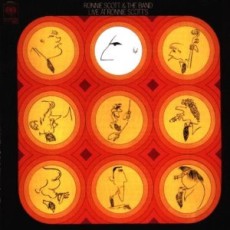
Daily Dose Of Jazz…
Tenor saxophonist Ronnie Scott was born Ronnie Schatt on the east side of London on January 28, 1927. He grew up in a single parent household after his father, dance band saxophonist Jock Scott separated from his mother shortly after his birth. His introduction to music was on a cornet he purchased from a local junk shop, then moved on to the soprano saxophone and finally settling into the tenor by his teens. Ronnie first starting playing in public performing with aspiring drummer Tony Crombie and was soon playing an occasional professional gig. After a stint with bandleader Carlo Krahmer and touring with trumpeter Johnny Claes, Ronnie joined the popular big band of Ted Heath in 1946.
However, changing economics made big bands increasingly unfeasible, and as bebop crossed the pond to the U.K., he and Crombie traveled to New York City to explore the source firsthand. Scott regularly returned to New York after signing on to play the Queen Mary’s transatlantic voyages alongside alto saxophonist Johnny Dankworth. Despite his travels Scott remained a cornerstone of the growing London bop scene, and in late 1948 he co-founded Club Eleven, the first U.K. club devoted to modern jazz. During this time he developed the lyrical but harmonically complex style that would remain the hallmark of his career.
In 1953 Scott formed a nine-piece group that made its public debut in conjunction with a London appearance by Norman Granz’s Jazz at the Philharmonic touring revue and working from arrangements by trumpeter Jimmy Deuchar, the Scott band’s debut proved to be a landmark moment in the history of British jazz heralding the true starting point of the postwar era. Yet in 1955, assembling a full-size big band proved creatively and commercially disastrous but left him a household name throughout Britain. In ‘57 he co-founded the Jazz Couriers with fellow tenor saxophonist Tubby Hayes, scaling to even greater heights of fame.
1959 saw Scott looking to create a jazz club emulating those of New York’s famed 52nd Street and on October 31st, with borrowed money, he opened Ronnie Scott’s Club at 39 Gerrald Street. Over the next two years as popularity grew, Scott hosted the likes of Dexter Gordon, Roland Kirk, Stan Getz, Sonny Stitt, Ben Webster and Sonny Rollins. By 1965 he moved the club to it’s present location on Frith Street, becoming the epicenter of London’s jazz community and bringing to the stage everyone from Ella Fitzgerald to Albert Ayler over the next decade.
At the time of his death on December 23, 1996, Ronnie Scott’s Club was perhaps the most famous jazz venue in all of Europe.
More Posts: saxophone


